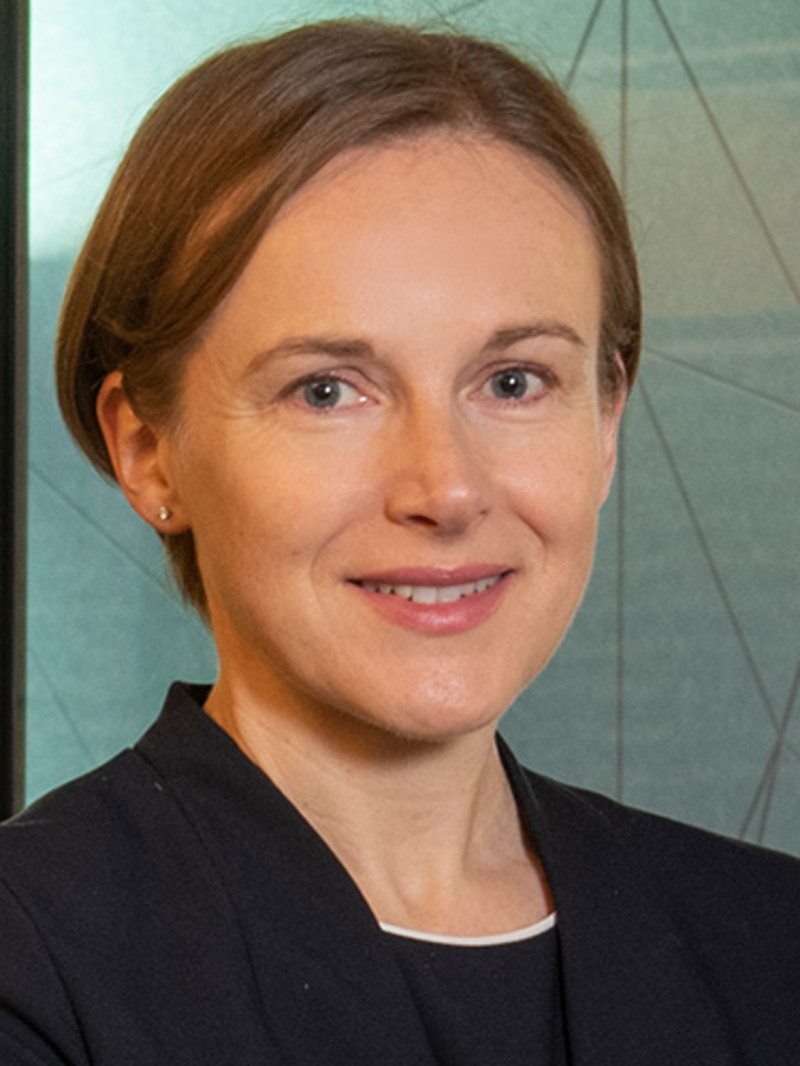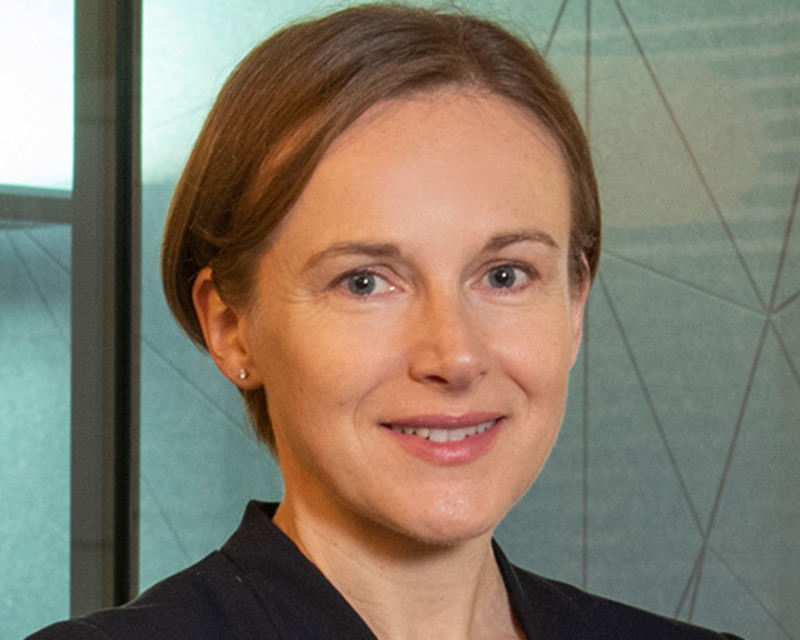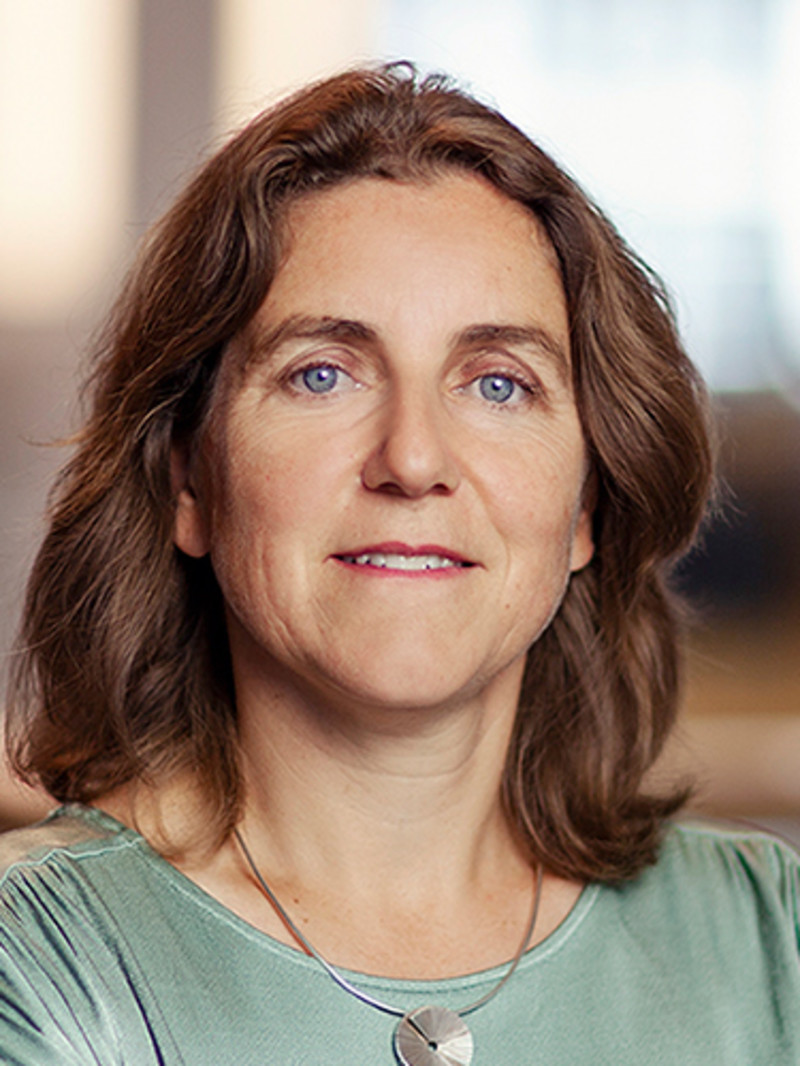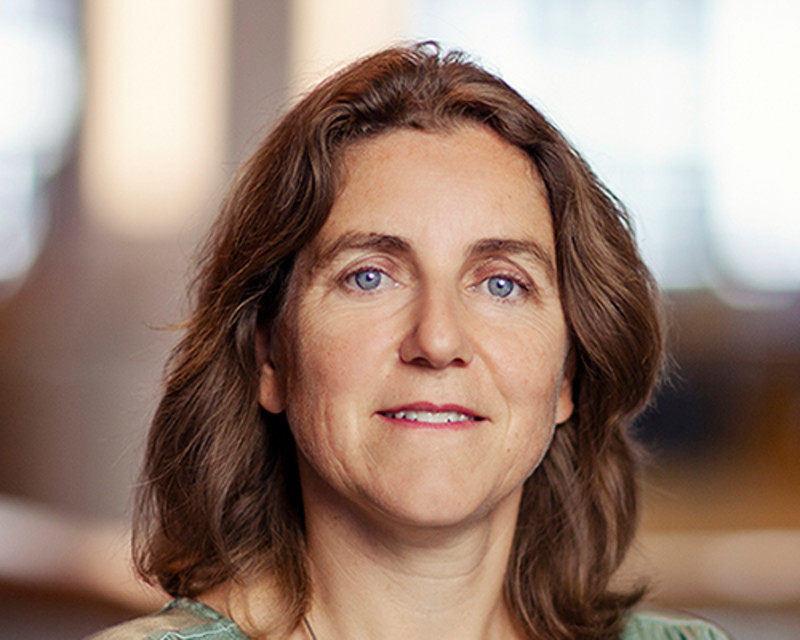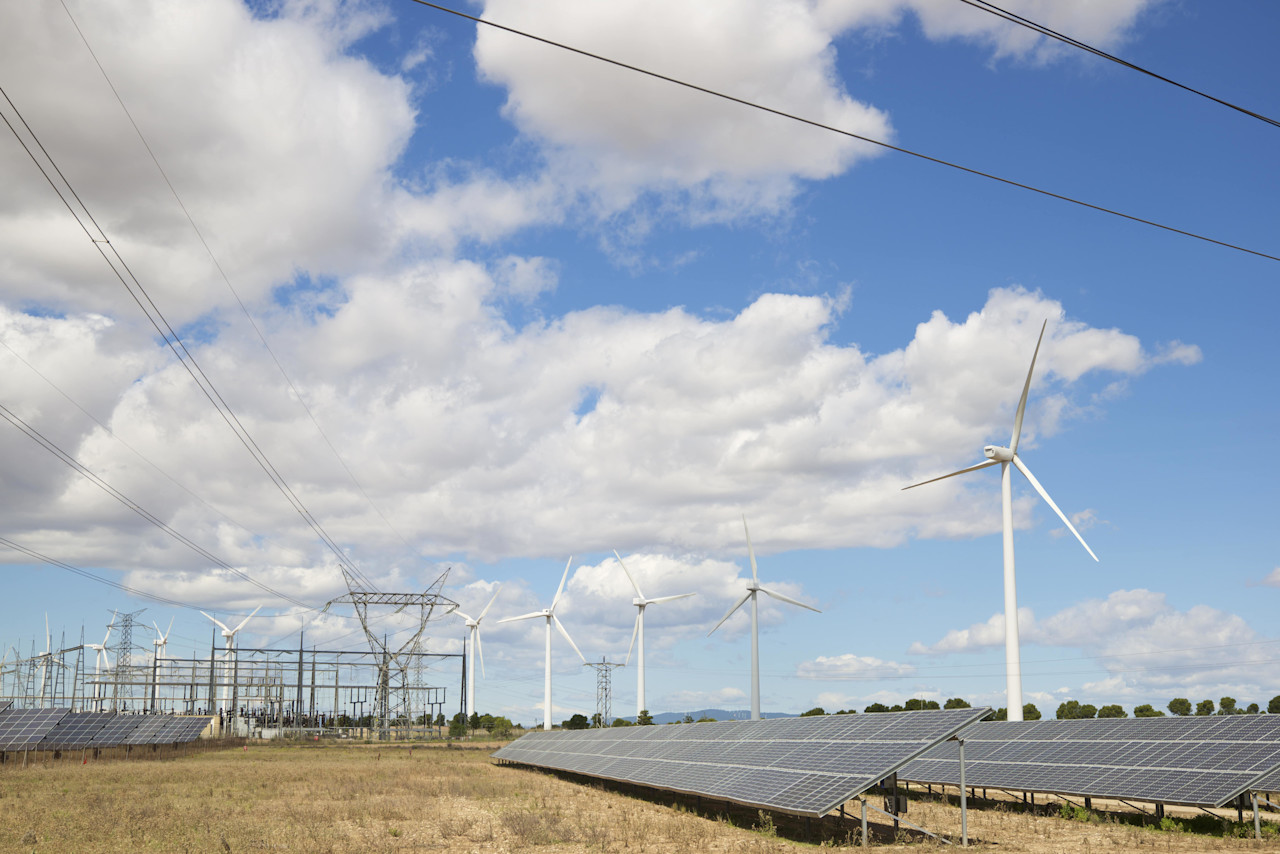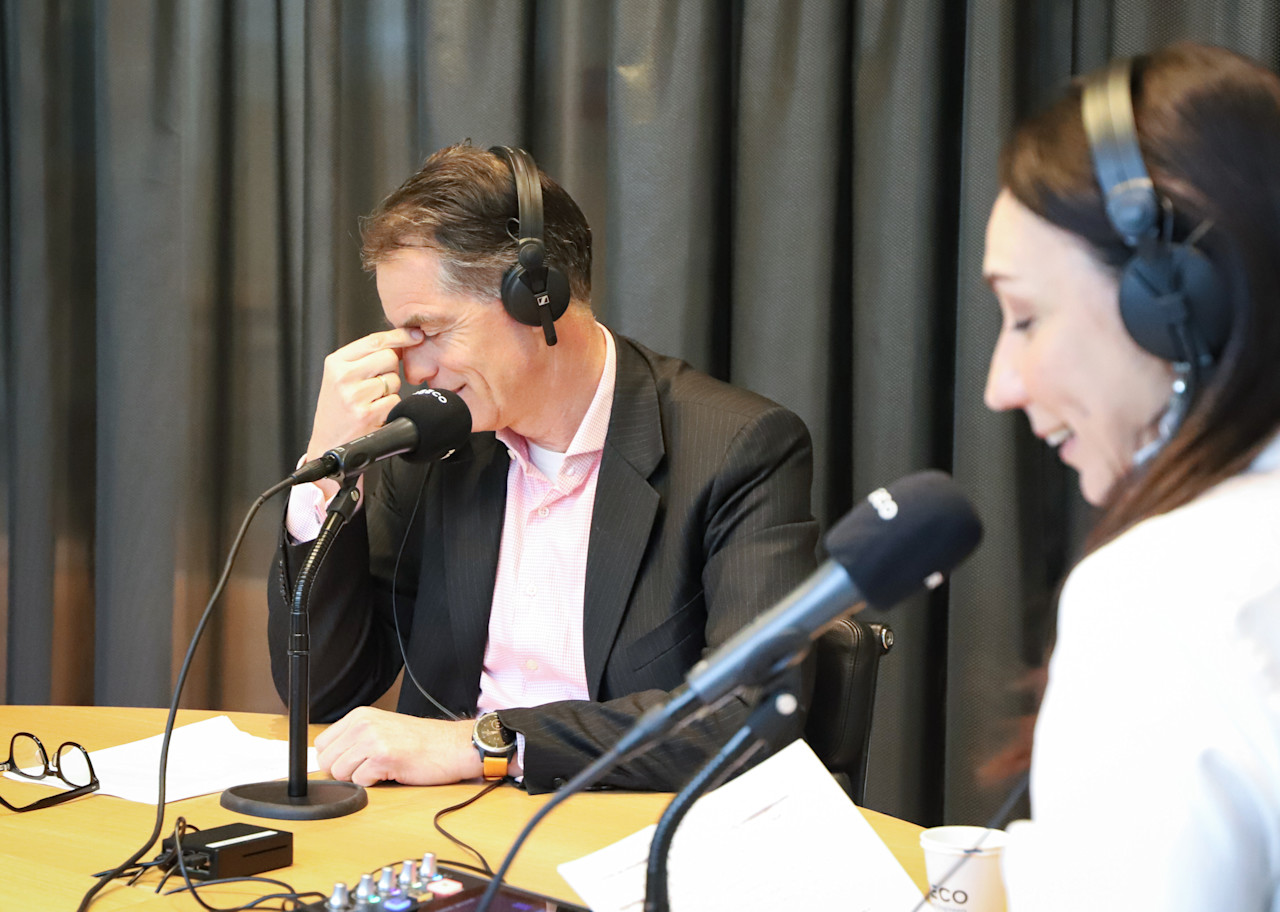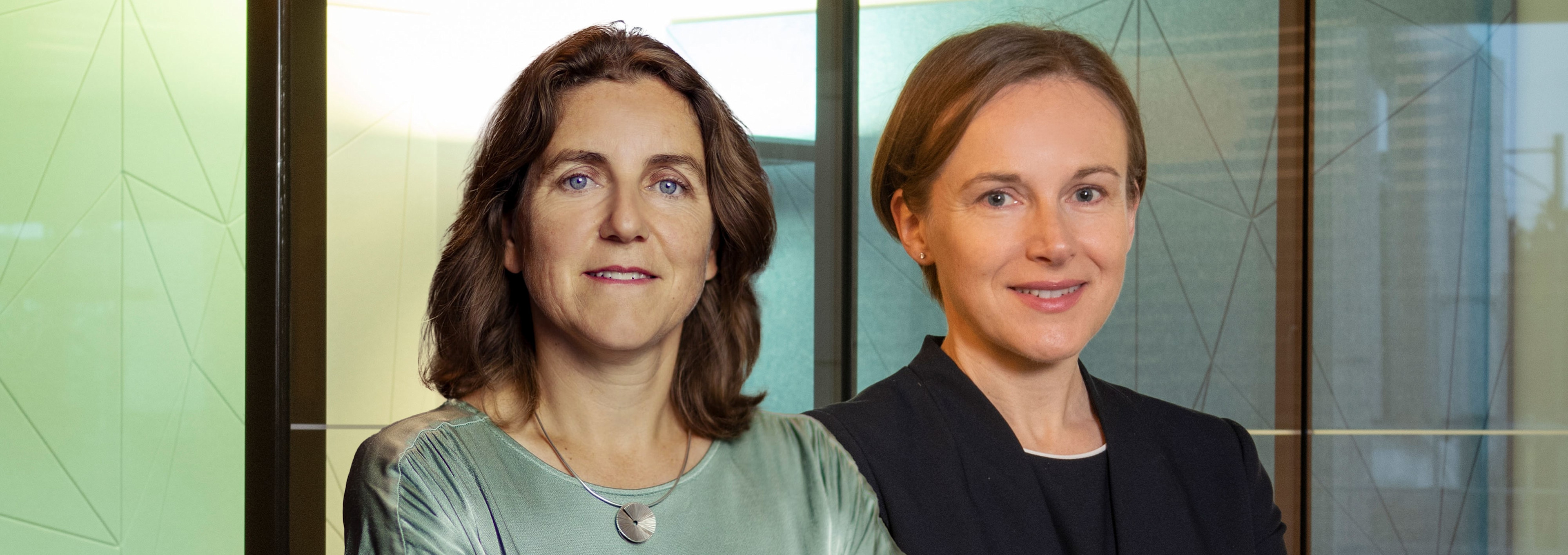

Podcast: Reports of the death of ESG investing are greatly exaggerated
There is talk of ESG fatigue – at least in some parts of the world – and concerns about how shareholder rights are evolving. There’s also fresh thinking about the role of defense spending in sustainable portfolios. Tune in to our latest podcast episode where Carola van Lamoen and Rachel Whittaker discuss the state of sustainable investing.
This podcast is for professional investors only.
Carola van Lamoen (CL): A lot has changed. It is not perfect, but there is much more data available from a sustainable investing perspective. Still concerns about quality but also regulation definitely helps here. And a last thing I wanted to say, it’s also more clear in the industry: who is serious about sustainable investing and who is not.
Welcome to a new episode of the Robeco podcast.
Erika van der Merwe (EM): As global economic and political pressures reshape markets, investors face growing debate about the value and scope of sustainability considerations. There’s talk of “ESG fatigue”, also concerns about how shareholder rights are evolving and fresh thinking now about the role of defense spending in sustainable portfolios. Joining me for this edition of Robeco’s Investor podcast to discuss where the biggest challenges are right now and what the future may hold for ESG and sustainable investing are Carola van Lamoen, she’s Head of Sustainable Investing at Robeco. And Rachel Whittaker, she’s Head of Sustainable Alpha Research at Robeco. Welcome. So good to have both of you here.
CL: Very nice to be here.
Rachel Whittaker (RW): Thanks, Erika.
EM: And of course, the stance of the US administration on ESG has had an undeniable impact on sentiment and practice. Carola and Rachel, I know you both regularly speak to clients and peers, so asset owners, asset managers and other stakeholders. What are you hearing? Carola, can I begin with you: is the interest in sustainable investing fading?
CL: Well, I’ve had many clients interactions over the last weeks and months. And if I look in Europe, what’s happening there, you see that a lot of the European asset owners, they are steadily continuing their sustainability journey. For example, they are also very much focused on optimizing risk return and sustainability. So you see there, organizations are staying on course.
I’m also just back from a trip in Asia; I went to Japan and Singapore. And you see there very clearly that energy transition is getting a big priority here. Regulation is emerging. But this topic of energy transition – that is top of mind. But you see also big regional differences. And that is one of the outcomes that we saw in our Robeco Global Climate Investing Survey: increasing regional differences. And overall you see that the climate change topic as an example falls in importance in the short term.
So both EU and APAC, however, at the same time they still consider the topic of climate very relevant and significant for the investment policy. So there is very much a difference between short term and long term. A lot of the net-zero commitments remain in Europe, in the APAC region. US is a different voice, but investors are clearly taking a long-term view.
EM: Okay. Well, Rachel, fascinating perspective here. What Carola seems to be describing is almost a two-speed scenario. Regulations evolving differently approaches philosophies. So for example the US and Europe being those extreme examples, in the US, climate disclosure rules are still uncertain. Fiduciaries are now required to focus mainly on financial returns when considering pension investment. While in Europe, you seem to be seeing an expansion in sustainability reporting requirements, more of a cutback or clampdown on greenwashing, for example.
RW: Yeah, I think we have seen a lot of discussion of the idea that the interest in SI is dropping off. And it’s certainly true that after the huge amount of growth that we saw in terms of assets under management and the level of interest that we were seeing from investors in the few years up to around about 2021/2022. That did come back in the few years after that. We saw a slowing of assets flowing into sustainable products.
But we’ve got to be mindful that we still have the highest level of sustainable assets under management that we’ve ever seen before. And I think what we’re seeing is a more natural correction of the huge amount of excitement about sustainable investment that we saw for a number of years. And there’s been a lot of discussion about this. There’s a very interesting discussion paper published by an academic in Switzerland that compared it to the level of enthusiasm we see for sustainability in the environment in other areas of life.
And you’ve seen a similar drop-off in the level of interest for green parties, for example, in the political arena, both – well in several countries in Europe. And I think it’s a natural reflection of the trend that when something has been so front of mind and so much in the public consciousness for a number of years, that you see a little bit of a pullback and have been reverting to a more natural trend. So I think that the level of interest is still there. And but what we’re going to see is a much more sustainable, if you like, pattern of interest and investors coming to this space and interest in topics like climate and nature going forward.
EM: So a more balanced approach. That’s what I’m hearing.
RW: Yeah.
EM: So in both your responses, there’s been an emphasis on the E. And I think that is a lot of the pushback that we’ve seen, for example, from the US administration. But there have been changes also beyond the E of the ESG.
Rachel, with the major changes we’ve seen at the global geopolitical level, there’s now a clear reconsideration of the role of defense spending in sustainable portfolios. Previously, there were far stricter requirements and now perhaps a recognition or an acceptance, particularly for Europe, that spending here needs to increase. What does this mean for investors so far?
RW: Well, weapons and involvement with the military has always been a topic that has been included on an exclusion list for a sustainable or responsible or an ethical investment product. That was one of the earliest tenets of this area of investment. But what we’ve seen more recently is the ability to be much more nuanced in how we approach the topic, and to try and differentiate between how companies are involved in these activities.
Because there’s a big difference in whether a company is manufacturing a weapon of mass destruction, which many companies wouldn’t disclose they were doing. You don’t tend to find public companies that are really involved in those kinds of activities. But there’s a big difference between that and producing a component or a technology or something that might be used by the military, but isn’t necessarily tailored for use in that way.
So what we are really trying to do now, as a many other investors, is to be much more thoughtful in how we apply these kinds of exclusions so that we can still, in some of our products, invest in the kind of companies that are developing technologies or products that also have uses that might be more sustainable or are selling products that are used in only for defensive purposes. But it’s a very difficult and it can be a very sensitive question to answer.
So you’ll still find that in the most sustainable funds, there are quite strict exclusions when it comes to any kind of involvement with weapons or with the military. But as you get products that are a little bit further away from the most sustainable products, there will be different levels of exclusions applied, different ways of analyzing companies, different thresholds in terms of revenues or profits that are applied to decide whether a company should be held in that portfolio. So, as with many sustainability questions, ultimately the onus is on the investor to make sure that they understand what approach is being applied and that it aligns with their values.
EM: Carola, does Robeco have a house view on defense spending, or do you typically follow whatever the client requires?
CL: Yeah, that’s a very good question. So basically, in short, investing in what we call “conventional defense”, that has always been possible in our mainstream funds. Controversial weapons have always been excluded in our entire fund range. And as Rachel also just described, we do have additional restrictions for our more sustainable funds because we do not consider weapons as sustainable investments. And I always would like to describe it as such. Defence investing, it can be responsible. We see the world is changing, but it does not mean that it contributes to sustainability impact. And we do regularly evaluate the approach. Make sure that we take a look at what’s happening in the world around us. And also to very much look: is fine tuning needed? This is not something that is set in stone for the next decades. That’s clear.
EM: Is this something that you have recently fine-tuned, or were you in the process right now of doing?
CL: Yeah. So basically this is an ongoing process, these constant evaluations. Yeah.
EM: And Carola staying with you, what about the G and ESG? Are you seeing any notable changes here in or pressures for change in particular on shareholder rights? So I have to think of an example: Robeco has another podcast, In Tune With The Markets. And there we referred, for example, to ExxonMobil, their new retail voting program, which by default casts retail investors’ votes in favor of the board’s recommendations. And this certainly has raised a few eyebrows. So is this a general trend? Are you seeing any concerns here?
CL: Yeah. In general I would say that shareholder rights are under pressure globally. So you were referring to a regulatory shift in the US. For example, it has become much more complicated to file shareholder resolutions. The SEC also made it easier to exclude shareholder proposals from the ballot. And this also has clearly resulted in a decline in the amount of shareholder proposals that are put forward. So that’s one aspect.
Another aspect is dual share class systems. So you see that several markets allow for dual class share systems or other types of unequal voting rights. And this really dilutes voting rights for regular shareholders. So it is a concern, you have seen that that is possible already for a long time in the US, but also several countries in Europe. But we also see in Asia that this is becoming – there are more options available, for example, in Hong Kong and in Singapore.
EM: So it’s still primarily a US phenomenon, but it is spreading.
CL: There are several topics that we are clearly watching from a shareholder rights perspective.
EM: Yeah. And what actions are you taking?
CL: Yeah. So basically, we’re closely following what is possible, what the developments are. We continue to vote at shareholder meetings. We do that with great care. We have a team of specialized experts to look into that. We make sure we also very clearly communicate to companies significant against votes. So we do take the rights that we have as a shareholder very seriously. And of course, we also engage with hundreds of companies on an ongoing basis.
EM: Yeah. So meanwhile we’ve seen the Net Zero Asset Managers initiative. It’s under review and the movement appears to have halted its formal commitments. It’s clearly a reaction to political developments in the US. How are you reading this, how you’re responding as a firm?
CL: Yeah, it’s a very relevant topic. So indeed, we’ve seen in January, the Net Zero Asset Manager initiative has been put under review. And this was in response to the withdrawal of several US managers from the initiative. It is clear to me that a review is necessary. It was necessary. So it was definitely the right moment to do so for the for the NZAM initiative. It is still not clear what the outcome of this review will be. But for us, no matter what the outcome is of the Net Zero Asset Manager initiative, we are staying on course with our ambitions and commitments, so that is very clear.
EM: As a firm –
CL: – as an organisation
EM: – operationally and the assets that you manage on behalf of clients.
CL: Yeah. So basically we have already established at the beginning of 2021 very clear, clear targets on how we want to decarbonize, how we’re also focusing on real world impacts. Because if you only focus alone on decarbonizing, your assets and the world around us is not changing, then there is an end to that. So focus on real world impact, and also very much on working together with clients on this that – we will continue to do that. We will soon launch our updated Climate And Nature Roadmap and basically, we’re staying on course.
EM: Broadly speaking, generally, Rachel, we’ve discussed some examples of how things are changing relating to sustainability and sustainable investing. How do you, as a research team, but also as Robeco as a whole, how do you respond to these changes?
RW: So sustainable investing has seen an enormous amount of change over the last couple of decades. And that’s as it’s become much more embedded in mainstream investing. In terms of the research that we’re doing and integrating these factors into investment decisions, my team is very much focused on the financial materiality of ESG issues and how they actually impact companies and how they would impact our investment case. And what we’ve seen is a general acceptance that that kind of activity actually should make sense for any investor and for any investment strategy, whether or not it’s labeled “sustainable”.
So as we’ve seen regulators take more of an interest in SI and start to tighten the definitions around it, they focused very much on the impact side and to try to ensure that anything with that label has a very clear impact philosophy. Whereas the financial material and materiality angle has become something that regulators see as something that all good investors should do. And that is something that some regulators have been very explicit about.
So, for example, in Switzerland, the guidance issued by the Asset Management Association Switzerland to all the asset managers is that products that only include ESG integration should not have a sustainable label unless, in addition, they also have a clear strategy to invest in impactful companies or to generate investor impact.
So we are very much supportive of that approach. We have many different approaches to SI, and some of those approaches focus more on the impact side, some focus more on performance. Sometimes we blend different approaches into different products, but the aim is to be very transparent about what the purpose is of any approach that we take. And to be clear to our investors about what the impact is likely to be on the performance of these strategies.
EM: Carola, so it’s clear also from what we’ve discussed so far and what Rachel has said, also taking into account what the client might need and how you adapt a product or a mandate accordingly, but there’s also a requirement as a house to take a stance and have a view. Is that a difficult journey to make?
CL: Well, I see in practice that this is perfectly well blendable. So what for me is crucial in this conversation and in this debate is that we have the tooling and the knowledge to be very flexible. So depending on what our clients wants, basically we can adjust. We can fine tune their approach. Do they want to have mainly a big focus on ESG integration? Then we have great analysts who do all that work.
But if they want to bring in additional lenses from a climate perspective, from a biodiversity perspective, from a social perspective, we have all this on the shelf. We have our frameworks and we can basically build solutions with the tools and the frameworks that we have in-house. So I think that is very important.
And what is also very important is innovation. So a lot of clients look at us and ask us, okay, “I see what you’re doing today, but what are you going to do tomorrow and the day after? So what’s next in sustainable investing?” And to give you two small examples: first of all, the topic of short-term physical risk. We see that that is growing, growing in importance and in relevance. So this is for us the next research topic, the next topic that we’re diving into. We also have great conversations with clients who challenge us, who ask questions, and they help us to sharpen our mind.
Basically, that’s one example. Another example is a new engagement topic that we’ve recently launched and that focuses on transition minerals. So basically, if you look at the decarbonization of society that comes with a lot of use of minerals. Think about lithium, cobalt, nickel. Relevant for miners, for battery makers. So how do those companies, how do they do with deal with the environmental risk and with the social risks? And it’s crucial to have a conversation about that. So it’s one of the new topics that we are focused on.
EM: Great. So just going back to the first examples, it’s clear that that clients are also challenging you to remain innovative. And they’re really collaborating with you in the brainstorming on where to push the frontiers. Is that so?
CL: I’m also always very keen that we don’t act in isolation. So if you only look at your own organization and your own team and think, what’s going to be there next, then you’re definitely going to miss out. So for us, part of the approach is: we are connected. We are having a lot of conversations with clients, but also with peers in the markets.
We are connected to academics like the Cambridge Institute for Sustainability Leadership. Being this spider in the web on sustainable investing and having very clear eyes and ears out there on what is next, what should we work on tomorrow and the day after? I think that gives a lot of energy to me. But I think to all the sustainability experts in the organization.
EM: Yes, indeed. Rachel, looking back, back at the evolution of sustainable investing over the past five years, and I would say it’s probably been exponential. Looking back at this, what would you say has surprised you most about how sustainable investing has changed and grown?
RW: It has changed enormously, not just in the last five years when we have seen a lot of growth, but even going back 15, 20 years. I think we’ve made more progress than perhaps any of us thought we might. I mean, some things have progressed much faster, other things maybe gone a bit slower than we would have liked. But in general, when I came into this field, the hope was that it would one day become just investing. And I think we’re much closer to that than we ever have been before.
We’re very much a part of mainstream investment now. SI is no longer a sideline activity. It is well regulated. There are many more specialists in this field than there were going back a few years. We have climate specialists, we have data specialists, sector integration specialists – far fewer broad SI generalists than we used to because it’s such a broad field now. And you also have many colleagues in other parts of the organizations that have had to incorporate elements of SI into their role, whether they are legal and compliance specialists or marketing communications, product developments.
It really touches every part of the investment industry now, and it’s no longer a sideline activity and very much a part of investments in general today.
EM: Really great perspective. Carola, you overseeing all of this within Robeco? From what Rachel says, there are so many resources required and technical skills required.
CL: This is not something that you do on a Friday afternoon. It really requires deep knowledge and insights, depending no matter if you look into climate scope 3 calculations or if you look into social impacts in specific sectors. So this really requires in-depth knowledge that is clear.
EM: And what’s changed the most over this period, let’s say the five year period. Yeah.
CL: If I look to the world around us, so many things change, not only in the last five years, but also ten and 20 years ago. But over the last years, for me, a couple of things stand out. So five years ago when we talked about climate, we were very much mainly looking at emissions.
EM: Yes.
CL: So basically looking what the emissions were of a company a year ago because that’s how old the information typically is, so really looking backwards. And you see now very much that we are shifting our focus much more on the transition readiness and really a forward-looking perspective. That has changed from a climate perspective.
I also see that from a data perspective, a lot has changed. It is not perfect, but there is much more data available. From a sustainable investing perspective, still concerns about quality, but also regulation definitely helped here. And a last thing I wanted to say is also more clear in the industry, who is serious about sustainable investing and who is not. So we’ve seen that become much more clear.
EM: And probably also because it requires these very resources. So it requires investment from the asset managers, from the investors to really do this properly.
CL: And I think it’s also important that you’re not doing this on the side. That this is a small team, a little add-on of people who do this as a hobby of the firm. No, you really want to make sure that this is integrated in our investment approach. That there are in-depth conversations between our climate experts, our governance experts and the portfolio managers and our financial analysts.
So that conversation and that connect, that is crucial to make it work. So being integrated is very important to be successful.
EM: Rachel looking to the future. Carol said much more to come. Lots of innovation in the pipeline. What do you expect from sustainable investing in, say, the coming year or two?
RW: I think Carola’s point about integration is a really key one. I think we will see more of that, and particularly beyond the next couple of years, as we see the next generations of analysts and portfolio managers coming into the industry, they have different expectations. They’ve learnt about sustainable investing, often in their studies. If they studied finance or investments and they’re going to come with certain expectations that it is just a part of their job. And we need to keep evolving with that.
EM: Carola, a final word from you. What trends should investors expect from sustainable investing?
CL: Well, I see that a lot of assets owners, they have high expectations from us, from asset managers: focus on impact, focus on outcomes of engagement. Be much more explicit on your forward-looking view. How does the transition how will it happen? That is interesting. Also regulators, they are pushing even more for harmonized standards and data transparency. And this all means that we as asset managers, we will need to continue to innovate. That is just crucial.
And also if we take another step back. So science has not changed. The world has changed around this, but the science has not changed. So for example, climate change is real and the risks are materializing around us. So as investors, we should be prepared for this. We will always be there to support clients in their sustainability journey. And I’m very confident that sustainable investing is here to stay.
EM: Carola, Rachel, thanks very much for your clear insights and philosophical reflections on what’s happening on sustainable investing.
CL: Thanks, Erika.
RW: It’s great. Thank you.
EM: And thank you to our listeners for being part of this discussion. If you’ve enjoyed this episode, please subscribe and share the podcast link within your network. Stay tuned for more market perspectives in our next episode. This financial markets podcast and Robeco’s investor-themed podcasts are available on all major podcast platforms, as well as on the Robeco website. Until next time.
Thanks for joining this Robeco podcast. Please tune in next time as well. Important information. This publication is intended for professional investors. The podcast was brought to you by Robeco and in the US by Robeco Institutional Asset Management, US, Inc., a Delaware corporation, as well as an investment advisor registered with the US Securities and Exchange Commission. Robeco Institutional Asset Management US is a wholly owned subsidiary of Orix Corporation Europe NV, a Dutch investment management firm located in Rotterdam, The Netherlands. Robeco Institutional Asset Management B.V. has a license as manager of UCITS and EFS for the Netherlands Authority for the Financial Markets in Amsterdam.




